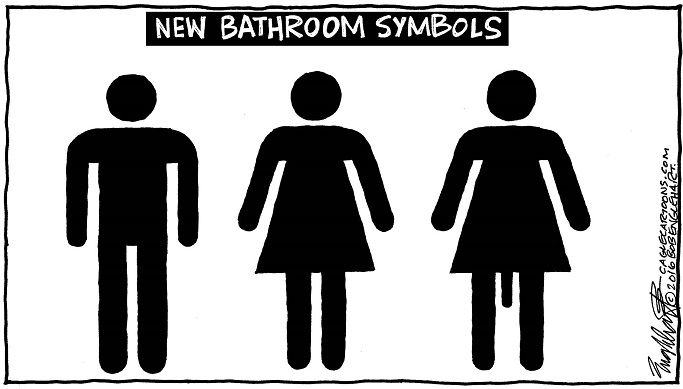
Slavery might have been abolished over a hundred years ago, but there is a new and subtle slavery that has taken over America.
If you’re not in the 1 percent, you’re likely feeling this great divide.
It’s wage slavery.
And no sector is feeling it more right now than blue collar workers. These were the real Middle Class in America, not the fringe. Manufacturing and construction… real “industry” jobs employed generations of Americans and helped build the strongest economy on Earth.
But those jobs and wages started to disappear when we transitioned from a maker economy to a financially-leveraged service economy in the 1970s.
Even what’s left of the manufacturing economy wallows in diminished wages and has pushed most of the jobs overseas. Yes, when the goods come back, they’re cheap, but this process has stolen the earnings power and any shot at wealth for the U.S. Middle Class worker.
Here’s a quote from a white paper out of the Federal Reserve Bank of New York’s publication Economic Policy Review from 1995 entitled, U.S. Wage Trends in the 1980s: The Role of International Factors by Robert Z. Lawrence:
“…trade (or globalization) helps explain the growing inequality in U.S. wages. In particular, they point to the correlation between rising wage inequality and the growing U.S. trade deficit (Murphy and Welch 1992; Borjas and Ramey 1993). Many argue that trade with developing countries is putting downward pressure on relative wages…”
That was 20 years ago, and things have not gotten better. Both skilled and unskilled jobs are taken up — and encouraged by the government to be taken up — by cheap immigrant labor here at home. In many cases, these jobs are still simply shipped abroad. Either way, the effect noted above has worsened, and American wages for the Middle Class have dropped like a stone.
The “buy American” slogan you might remember from years ago would have helped reverse this. That same Fed paper says, “…had American workers chosen to consume the products they produced, their real compensation would have increased by about 10 percent over the 1980s…” And wages surely would have increased more from there.
Instead, we buy from China and Bangladesh and our addiction to cheap goods and labor has meant the death of the blue collar worker — and the Middle Class — in the U.S.
To see how wage slavery pushes more and more wealth (profits) to the 1 percent, all you have to do is recall that corporations are beholden to shareholders, not workers. And the shareholders are Wall Street bankers, not workers.
According to CNBC, less than 50 percent of Americans are invested in the stock market. And that includes mutual funds in their retirement plans.
On the other hand, most industry figures put institutional influence in the stock market at more than 90 percent.
That means less than 50 percent of individual investors make up less than the 10 percent of the stock activity in the stock market.
That is a humbling reality. It means that institutional investors are running the show and they skim profits from market moves (up and down) that toss individual investors around and from hedging their massive positions.
It’s a tough game for individuals.
I remember once working with a famous options trader doing analysis for their trading service. He was a major player at the Chicago Board Options Exchange and would travel to various countries to help them set up options trading exchanges.
He would send over the trades and we would send it to our subscribers. But what we realized was, the traders on the floor were used to institutional orders of 100-plus options contracts at a time. We had individual subscribers buying one or two contracts with limit orders.
Floor traders told us that the orders were a nuisance and they would run the prices up or down to blow out these small trades and then get back to their “real” trading. Needless to say, the service wasn’t as successful as we had hoped.
It opened my eyes to the fact that try as we might, individual investors are swimming upstream in a very rigged game; if I can be allowed to mix a metaphor.
What that means for you is that it’s becoming apparent that our entire economy is now part of that game the institutions are playing.
And to bring it full circle, the effect is that we no longer control the means of production.
Let that sink in.
That means if China or Vietnam or Taiwan decides they aren’t shipping products that U.S. engineers have designed, there’s nothing we can do. And we can’t simply ramp up domestic production because it doesn’t exist.
And what manufacturing we have left is mired in recession. Jobs are still leaving in search of lower priced labor to help pad the pockets of the wealthy stockholders.
According to the Financial Times, the U.S. service sector now makes up at least 84 percent of the U.S. economy. That is an astounding number. And very few of these jobs are long-term middle-class lifestyle-building jobs. Unless you think going from sales associate to an assistant store manager at Walmart or Lowe’s is going to get your kids through college.
We constantly hear horror stories of computers becoming smart enough that they decide humans are irrelevant. But the fact is, the real horror story is already happening. Corporations own the government and have forced people back to subsistence to keep them from looking beyond their difficult individual circumstances.
We have a lost generation of builders and tinkerers and industrial engineers. It’s all been outsourced. My first house had a decent size basement workshop. My neighbor told me the original owner built a small airplane in the workshop.
How many people do you know who still have a workshop in their garage or basement? Most garages are a microcosm of what I am taking about; they’re filled with the junk we’ve all bought, and nothing we’ve made.
Coders and network engineers are great, but America was built by Americans, not contracted out. And computers aren’t going to overrun humans, but greedy companies and their political shills will. Technology is an easy solution for the 1 percent because they don’t need people, just goods and services. They don’t care where the labor is or where profits are kept, as long as they are getting paid.
And the only way to change things is to vote… with your investments. Vote for politicians that care about helping their constituents, not themselves. They are supposed to be representatives, not “workers.” It’s not a job. If they don’t represent us, we vote them out and start over.
Also, invest in companies that invest in America, not hide profits overseas. Stay out of the reach of the banks as much as possible and limit your debt. Keep gold and silver as a hedge on worthless paper currencies.
It’s time to start to act individually and not count on the “help” of our new masters.
— GS Early



